IN THE KNOW

Our Handy Office Guide to Chinese New Year Etiquette
Chinese New Year 2019 falls on February 5th, lasting until February 19th, and the coming year is the year of the pig. Pigs mean good luck, good fortune, wealth, honesty and prosperity. The animal symbolises
someone hard working and peace-loving, someone truthful, generous, indulgent, patient, reliable, trusting, sincere and giving, a sociable person with a great sense of humour and a good level of understanding. Isn't it interesting that they're some of the most important personality traits we need at work?
At this time of year there are all sorts of lion dance office parties, low sang lunches and dinners held to usher in the new year. It's important to get the etiquette right. Here's our guide to good office CNY party manners.
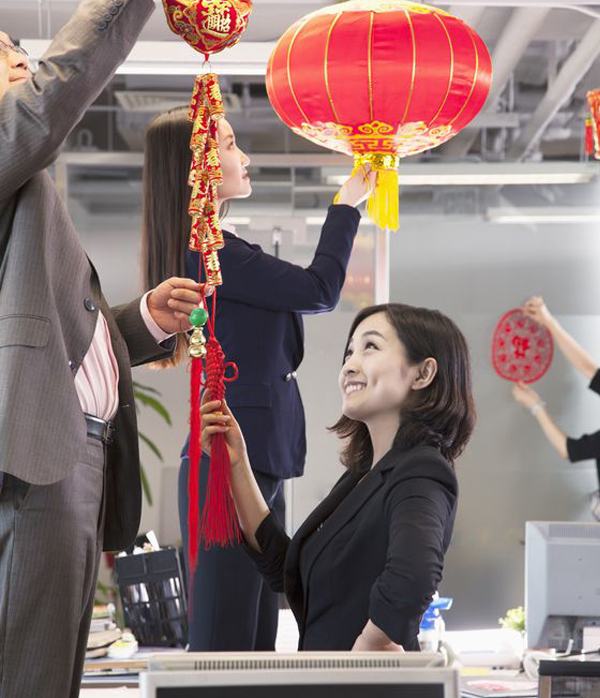
The dos & dont's
of the
lion dance
It's amazing to watch, and the lion dance is rich in meaning. Two people dress in a lion costume, dancing to the powerful beat of the drums to reveal their dexterity and skill, coordinating their movements to bring down a high-hanging symbol of good fortune. As a member of the audience, you have some serious responsibilities.
- Never touch the lion. You might scare the dancer and put them off. Because the back of the lion is the dancer’s butt, it's something you probably want to avoid anyway!
- Don't jump over the lion, even if the costume is empty. It's very disrespectful because the lion is your guardian
- Don't touch the lion's horns or mirror. They fight evil spirits, and interfering with them is thought to be inauspicious
- The colour white is inauspicious, sometimes worn at funerals. Keep white things away from the dragon!
- Give the lion a generous round of applause at the end
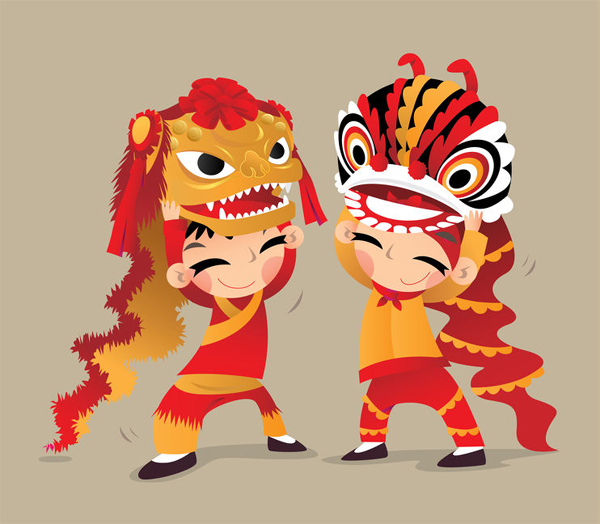
9 more tips
for good
Chinese New Year
etiquette
Chinese New Year is celebrated in different ways across the world, but wherever you celebrate it you need to bear these simple rules of good etiquette in mind:
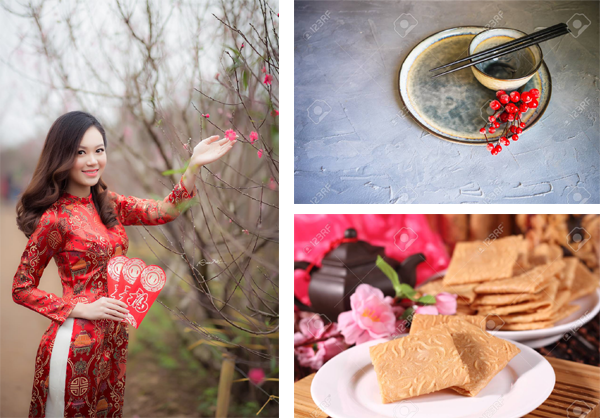
01
Wear red! Or at least wear brightly-coloured clothing, ideally new clothes. Black and white, symbolic of death and mourning, are not appropriate.
02
Avoid negative words and thoughts.
03
Don't eat before you go – it's rude to refuse food provided by your host, so you need to feel good and hungry!
04
- 心想事成 (xīn xiǎng shì chéng) – May all your wishes come true
- 新年快乐 (xīn nián kuài lè) – Happy New Year
- 恭喜发财 (gong xǐ fā cái) – Happiness and prosperity
- 步步高升 (bù bù gāo shēng) – Promotions at every step
- 事业有成 (shì yè yǒu chéng) – Success in your career
05
Don't talk about work! This is your chance to get to know your colleagues and clients better, and that means not talking business. It means sharing experiences and ideas, being interested in what others have to say, asking about their family and background, maybe their latest holiday, their kids, their car, their personal experiences, their latest home improvement project.
06
Be hospitable. It's all about respect and courtesy, putting yourself second. Offer your guests food first then take some yourself, serving them with a common serving spoon, not your own spoon. And spend plenty of quality time with each guest.
07
Be careful not to put your chopsticks into your bowl when you've finished eating. It is symbolic of worshipping your ancestors and isn't suitable for the new year. Instead lie your chopsticks flat on the table during the meal, at times you are not using them, and balance them flat on top of the bowl when you've finished. Never point a chopstick at someone or something either, it's very impolite.
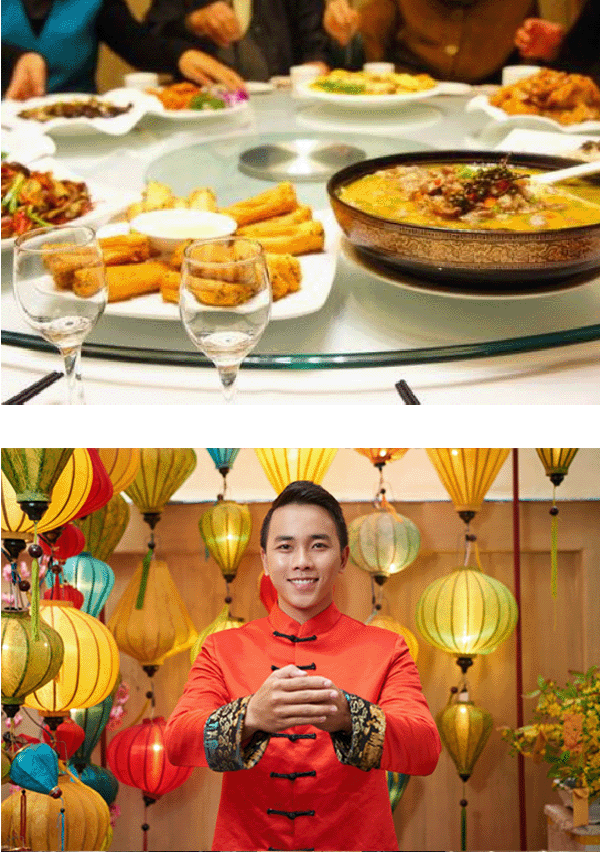
08
Leave the last piece of food in each dish, the piece called the paiseh piece. Never take the last item of food off the tray because it says you think the host hasn't provided enough food.
09
As the host, you pay! It's your job to pick up the bill, not ask others to share it with you. At New Year it's frowned upon to be mean with your money.

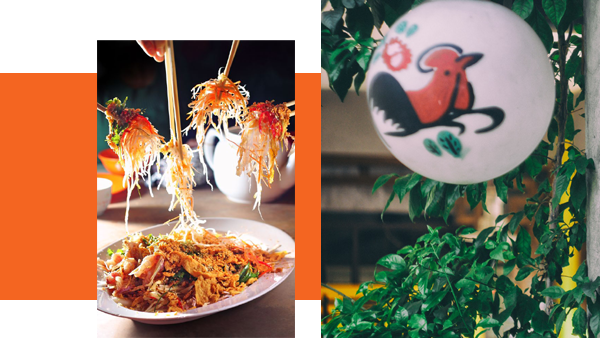
The dos and dont's of
Lo Hei
Lo Hei is the Cantonese name for a beautiful salad dish that's recently become very popular at Chinese New Year, served at the start of the feast. It was invented to celebrate birthdays that fall on the seventh day of the Lunar New Year, a day called the Birthday of Men, the day the Emperor of Heaven let the Goddess create the human race. The event is traditionally celebrated by eating seven different vegetables and raw fish.
The name Lo Hei originates from the Cantonese phrase ‘to toss up good fortune’, 'Yu Sheng' in Mandarin. You'll love the super-fresh daikon radish, carrots, spring onions, ginger, pickled spring onions, cucumber, crispy fried dough croutons, seaweed, Chinese pear and raw fish combination, dressed to perfection with delights like crushed peanuts, sesame seeds, five-spice powder, plum sauce and sesame oil.
Lo Hei is served on a long plate, separate from the fish. We dress the salad at the table then everyone stands up, using their chopsticks to mix and toss the salad. When you toss the salad you shout out your wishes for the new year. The higher you toss your salad into the air the better fortune you'll have in the new year.
All that remains is to wish every one of our wonderful staff and fantastic clients a magical new year and a happy, successful twelve months ahead. If you need insurance, we provide excellent quality policies to protect yourself, your home, your business and your employees.
 "GOOD LUCK,
"GOOD LUCK,
GOOD HEALTH
AND MUCH HAPPINESS
THROUGHOUT THE YEAR!"


Posted 10 January 2019 Reading time 7 mins